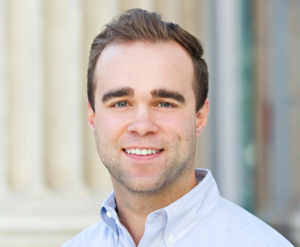
Students at the Tepper School of Business at Carnegie Mellon University. Courtesy photo
The coronavirus pandemic has upended nearly every aspect of society, and many believe the changes will be here to stay as the “new normal” even after we eventually move past the deadly scourge.
When it comes to work, doing it remotely has become the standard. In terms of consumer behavior, online shopping has only strengthened its foothold, while supermarkets, restaurants, and retail outlets now operate with reduced capacity and more stringent rules for patrons like requiring a mask upon entry.
The higher education system in the U.S. will not be spared from coronavirus-induced changes either. Already, the pandemic forced campuses across the country to shut down in mid-March and complete the spring semester via Zoom and other online platforms.
But, that was just the tip of the iceberg for colleges.
MORE AND MORE HIGH SCHOOL STUDENTS COULD SKIP COLLEGE FOR A GAP YEAR
When students were sent home, parents got to see firsthand what really goes into earning that degree that they oftentimes pay $50,000 per year for. The veneer of college is the beautiful campus, the state-of-the-art gym and dining facilities, the access to professors, and the connections that will be made.
When the coronavirus pandemic stripped all of that away, the extraordinary college price tag became much harder to justify.
Scott Galloway, a marketing professor at New York University, offered his insight in an interview with The New Yorker:
“Even wealthy people just can’t swallow the jagged pill of tuition if it doesn’t involve getting to send their kids away for four years. It’s like, ‘Wait, my kid’s going to be home most of the year? Staring at a computer screen?’ There’s this horrific awakening being delivered via Zoom of just how substandard and overpriced education is at every level. I can’t tell you the number of people who have asked me, ‘Should my kid consider taking a gap year?’”
As the struggle to contain the coronavirus continues, the future remains uncertain when it comes to higher education’s plan for the looming Fall semester. And, this instability has led to many current high school seniors from the class of 2020 questioning their college plans according to a recent survey from LendEDU.
The LendEDU study found that many high school seniors are considering a gap year next year due to the coronavirus and its impacts, in addition to considering less-traditional alternatives like online college or community college.
Further, even high school seniors that have already committed and sent a deposit to a college are not entirely sure they will be heading to campus in the Fall, especially if learning stays virtual.
It’s certainly worth mentioning that some institutions, including the California State University system and Harvard Medical School, have already confirmed that learning will remain online for the Fall 2020 semester.
Current college students from the class of 2021 or later were also included in the LendEDU survey, and they too are quite shaky when it comes to returning to the college campus they had to leave in mid-March.
Not only are current college students considering options like transferring to a more affordable institution or one closer to home, but 28% are considering dropping out and enrolling in an online college, while 34% are thinking about taking time off.
The truth is that the U.S. higher education system was always on a collision course with a major reckoning as colleges continued to raise tuition and the student loan debt bubble continued to inflate.
But, that reckoning was maybe a decade or two away until the coronavirus pandemic catalyzed it so that it now appears to be in the immediate future.
MAJOR UNIVERSITIES COULD SEE A DROP IN DEMAND AS SOON AS THIS FALL
The cost of college has simply become too high, and now those who pay for it have had a chance to see what it’s really worth when learning went virtual this past spring. Going forward, community college and online college will become much more viable, cheaper alternatives for students, just as the LendEDU data indicates.
And, if it’s not those two alternatives that steal students away from traditional institutions, it will be the gap year. The gap year is going to become much more common according to LendEDU’s data, and one can expect that some students that take a gap year will never wind up going to college because they realize they want to go down a different path.
What this all spells out for most traditional colleges and universities is that they will begin seeing a major drop in demand as soon as this upcoming Fall semester. Already, the University of Michigan is projecting revenue losses up to $1 billion in 2020 due to a drop in demand.
SMALL, PRIVATE COLLEGES COULD BE HIT HARDEST
So, as many colleges start experiencing that drop in demand, and subsequently revenue, they will be forced to cut tuition prices to remain competitive with online colleges and other alternatives in the years to come.
Additionally, we may begin to see traditional colleges offering online degrees that feature much more robust coursework and technology so that they can still attract some of those students and parents that are now open to the idea of online college.
If some institutions decide to go down this virtual path, they would also have to offer a much cheaper tuition rate compared to their standard pricing.
It’s also worth noting that the upper-echelon institutions like Harvard and Stanford likely won’t see any impact in the future because they will simply reach down and grab the students that wouldn’t have been accepted pre-coronavirus.

Mike Brown of LendEDU. Courtesy photo
The colleges and universities that will suffer the most will be the small, private institutions that don’t have a sterling academic reputation. For these types, we will likely see many closing their doors permanently in a scenario that feels eerily similar to the retail apocalypse of the 21st century.
Ultimately, this major higher education upheaval was going to come eventually, but the pandemic may have brought it into the rearview mirror much sooner than some would have liked.
Author Bio: In his role as Director of Communications at LendEDU, Mike uses data, usually from surveys and publicly-available resources, to identify emerging personal finance trends and tell unique stories. Mike’s work, featured in major outlets like The Wall Street Journal and The Washington Post, provides consumers with a personal finance measuring stick and can help them make informed finance decisions.











Questions about this article? Email us or leave a comment below.